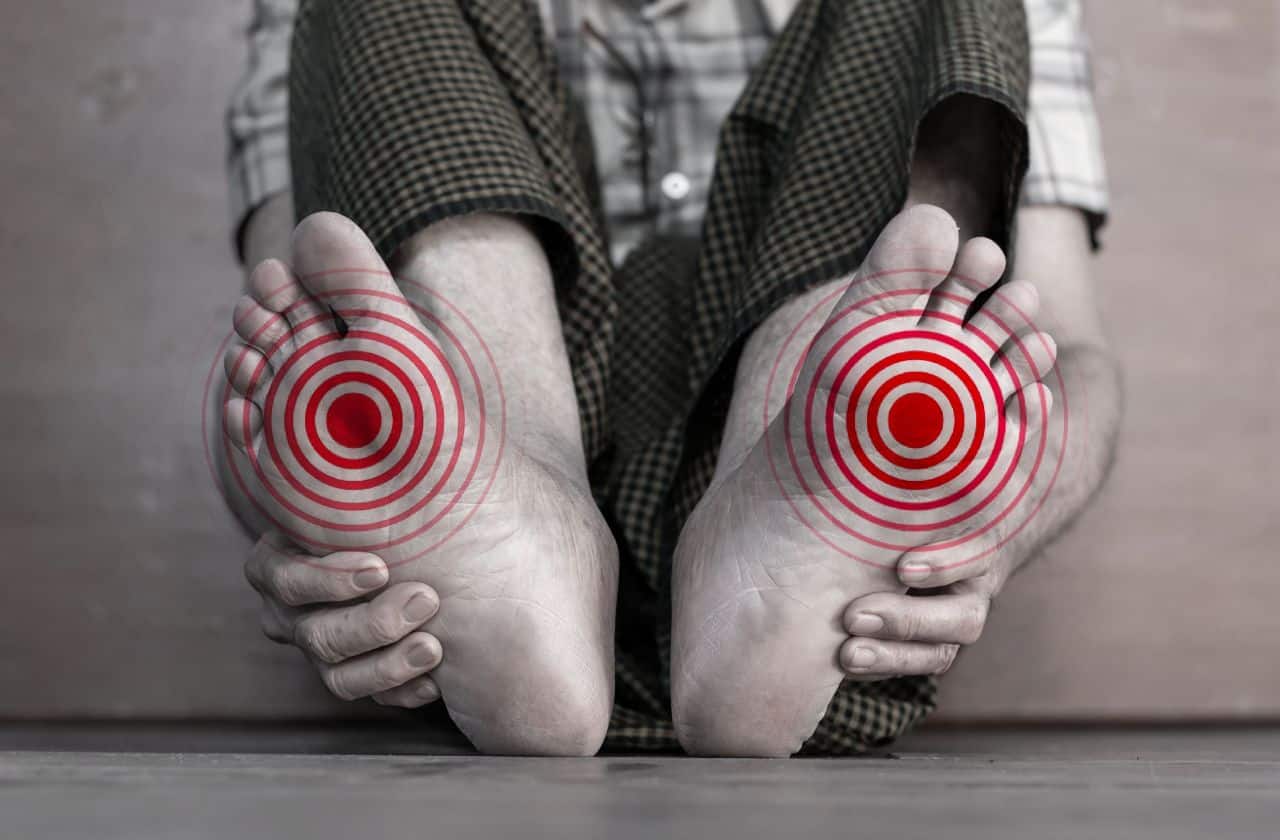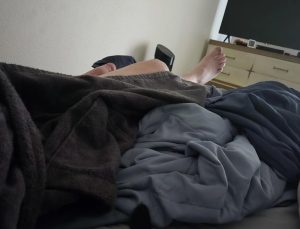HT6. Warning Signs in Your Feet: When Burning, Tingling, or Numbness Occur
Experiencing unusual sensations in your feet, such as burning, tingling, or numbness, may seem like minor inconveniences. However, these symptoms can be early indicators of underlying health conditions that require attention. Since our feet are the farthest from the heart and brain, they often serve as the first to signal nerve damage or poor circulation. Recognizing and addressing these symptoms promptly can help prevent more severe complications.
Burning Sensation in the Feet
A persistent burning sensation in the feet, especially noticeable at night, is commonly associated with peripheral neuropathy, a condition where nerves are damaged. This type of neuropathy is frequently linked to diabetes but can also result from other causes such as:
- Chronic alcohol use: Long-term alcohol consumption can lead to nerve damage, resulting in burning sensations in the feet. This is due to the neurotoxic effects of alcohol on nerve cells.
- Vitamin B12 deficiency: An essential vitamin for nerve health, a deficiency in vitamin B12 can cause neurological issues, including burning sensations.
- Hypothyroidism (underactive thyroid): An underactive thyroid can impact nerve function, contributing to sensations like burning or tingling.
- Kidney disease: Reduced kidney function can lead to toxin buildup in the body, which can damage nerves and cause symptoms like burning in the feet.
- Certain medications: Some medications, particularly chemotherapy drugs, can damage nerves and lead to peripheral neuropathy.
Individuals with diabetes are particularly at risk, as prolonged high blood sugar levels can damage nerve fibers over time. The high blood sugar interferes with the proper functioning of the nerves, leading to symptoms such as burning, tingling, and numbness in the feet and hands.
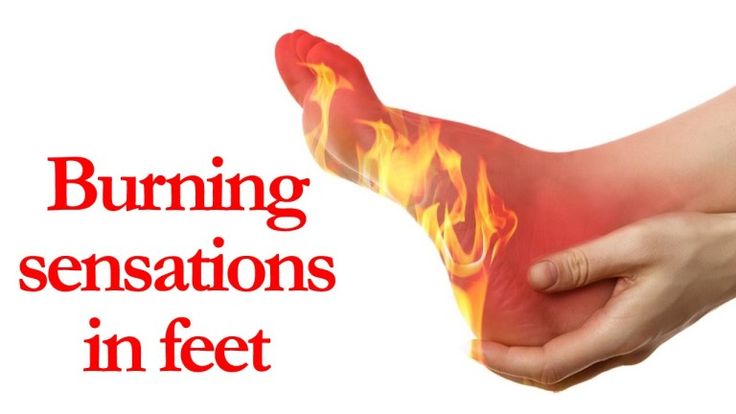
If you experience a burning sensation in your feet that disrupts your daily activities or sleep, it’s crucial to consult a healthcare professional. Early medical evaluation is essential to prevent further nerve damage and complications, particularly for those with diabetes. Ignoring these symptoms can lead to the progression of neuropathy, making it more difficult to treat.
Tingling Sensation (Paresthesia)
Tingling in the feet, often described as a “pins and needles” feeling, can occur temporarily after sitting in one position for too long or when your foot “falls asleep.” However, if this sensation becomes frequent or persistent, it may indicate nerve compression or damage. This tingling sensation, known as paresthesia, can be a sign of the following:
- Nerve compression syndromes like tarsal tunnel syndrome: Tarsal tunnel syndrome occurs when a nerve in the foot becomes compressed, leading to tingling, numbness, or burning sensations. This condition is similar to carpal tunnel syndrome, but it affects the foot instead of the wrist.
- Vitamin deficiencies, particularly B vitamins: Lack of essential vitamins, especially B12, B1 (thiamine), and B6, can interfere with nerve function, causing tingling sensations.
- Sciatica: A condition caused by irritation or compression of the sciatic nerve that can lead to tingling or numbness in the feet and legs.
- Early stages of peripheral neuropathy: As neuropathy develops, it may initially present with tingling sensations in the feet, which can progress to burning or numbness if untreated.
- Multiple sclerosis (in rare cases): Multiple sclerosis (MS) is an autoimmune disease that affects the nervous system, causing symptoms such as tingling, numbness, and weakness in various parts of the body.
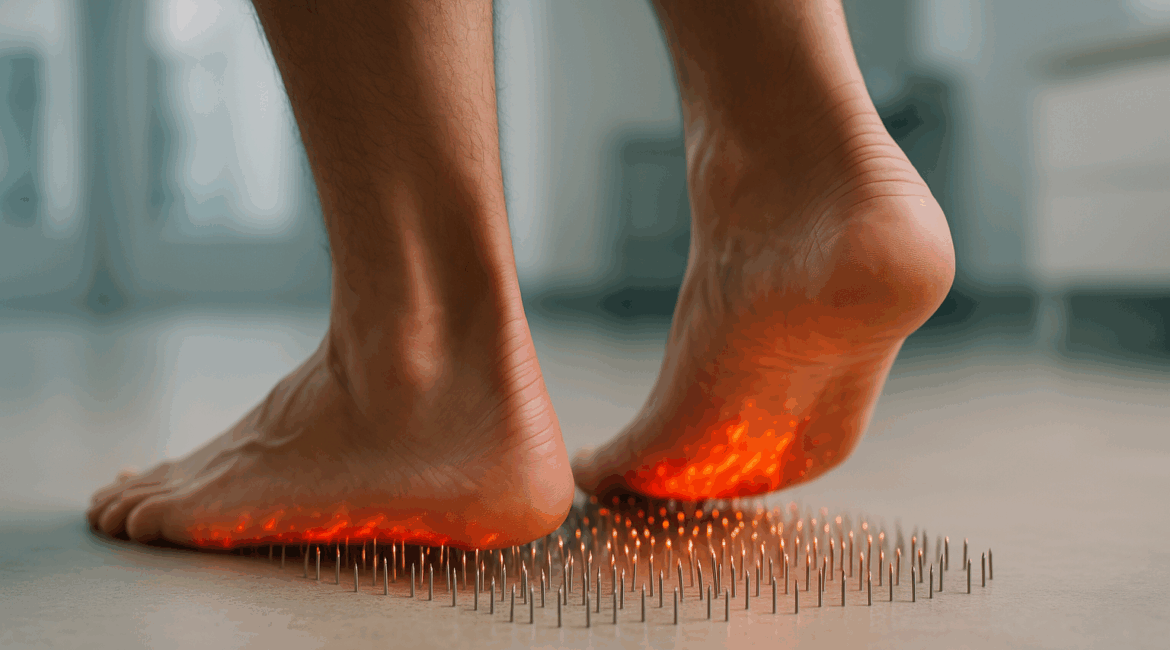
Tingling that persists or spreads to other parts of the body, especially when it is accompanied by weakness or changes in coordination, should not be ignored. It’s important to consult a doctor to address the underlying cause. In some cases, this could be a sign of a more serious condition such as MS, which requires prompt treatment.
Numbness in the Feet
Numbness in the feet or toes, characterized by a loss of sensation, can be particularly concerning as it may lead to unnoticed injuries. If you can’t feel your feet properly, it may lead to accidents or injuries, as you might not be aware of cuts or bruises. Numbness is often associated with conditions such as:
- Peripheral neuropathy: As mentioned earlier, damage to the peripheral nerves often causes numbness, especially in the feet. This condition is common among diabetics.
- Poor circulation: Reduced blood flow to the feet can lead to numbness, as the nerves don’t receive the necessary oxygen and nutrients from the bloodstream.
- Spinal cord issues or stroke: In some cases, numbness in the feet, especially if it occurs suddenly or is associated with weakness, can indicate spinal cord issues or even a stroke. If these symptoms occur, they require immediate medical attention.
- Multiple conditions: Numbness can also be caused by conditions like rheumatoid arthritis, where inflammation in the joints can affect nerves, or even infections that affect the nervous system.

Sudden numbness, especially when accompanied by weakness, dizziness, or speech difficulty, should be treated as a medical emergency. This could indicate a stroke or a serious neurological condition that requires immediate intervention. If you notice any changes in sensation in your feet that don’t resolve quickly, seek professional medical advice.
When to Seek Medical Attention
It’s important to consult a healthcare provider if you experience:
- Persistent or worsening burning, tingling, or numbness in the feet: If the sensations don’t improve or get worse, it could indicate an underlying condition that requires treatment.
- Symptoms that interfere with daily activities or sleep: If your symptoms are preventing you from functioning normally, it’s important to seek medical help.
- Sudden onset of numbness, especially with weakness: This could be a sign of a serious neurological problem, such as a stroke or spinal cord issue, and requires immediate attention.
- Signs of infection or non-healing wounds on the feet: If you have diabetes or poor circulation, small wounds on the feet can become infected quickly and may not heal properly, leading to more serious complications.
Early diagnosis and treatment are crucial in managing conditions that cause these symptoms. The sooner you address the problem, the better the outcome will be in preventing nerve damage or serious complications.
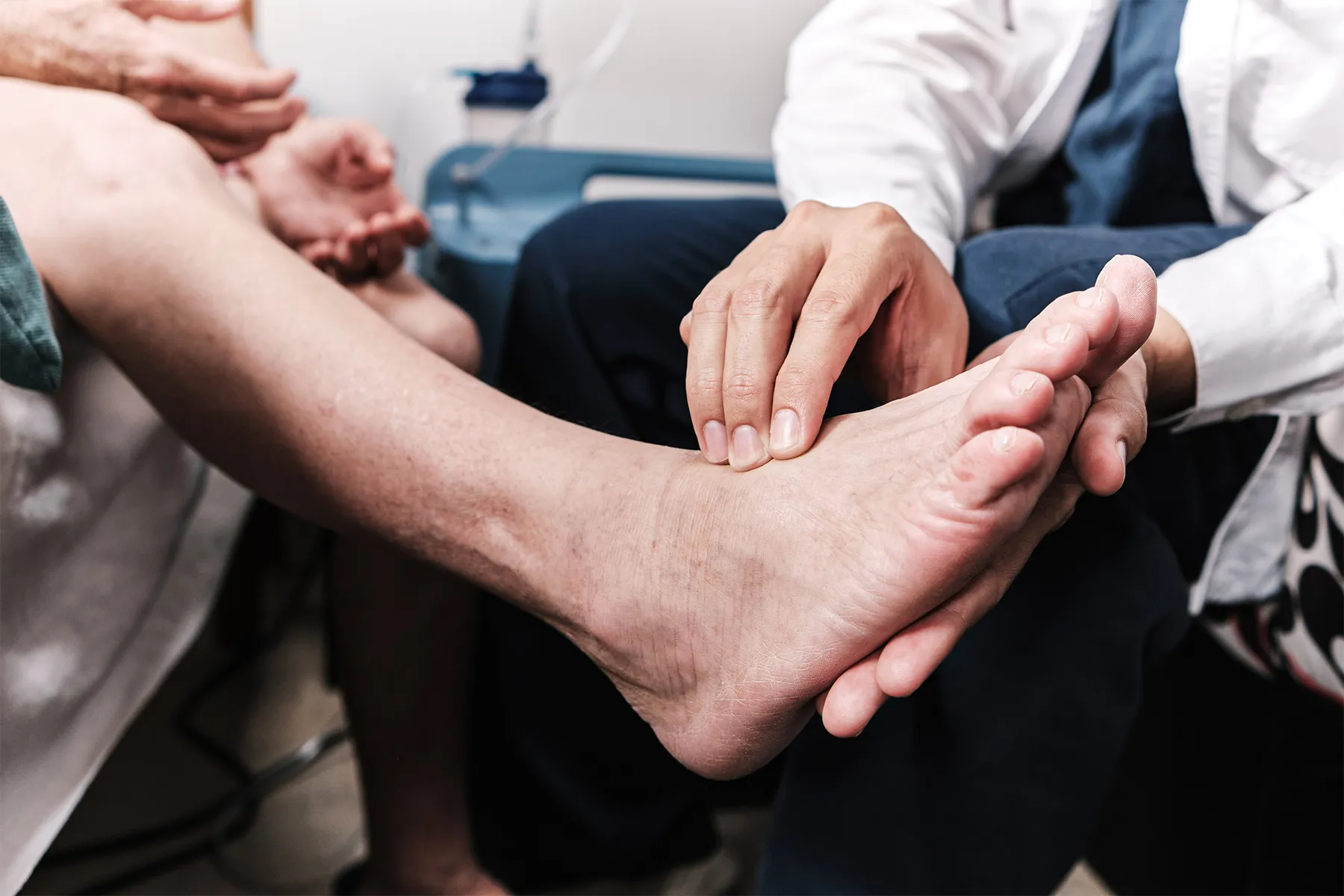
Understanding Peripheral Neuropathy
Peripheral neuropathy refers to damage to the peripheral nerves, which can result from various conditions, including diabetes, infections, and vitamin deficiencies. Symptoms can range from mild tingling to severe pain and loss of sensation. Treatment often involves addressing the underlying cause, managing symptoms, and preventing further nerve damage. In many cases, proper management can help prevent the condition from progressing and improve the patient’s quality of life.
Preventive Measures
To reduce the risk of developing conditions that cause burning, tingling, or numbness in the feet:
- Maintain healthy blood sugar levels if you have diabetes: Keeping blood sugar under control helps prevent nerve damage caused by high glucose levels.
- Ensure adequate intake of essential vitamins, particularly B12: Vitamin B12 is essential for nerve function, and a deficiency can lead to neurological issues.
- Avoid excessive alcohol consumption: Alcohol can have a toxic effect on nerves, leading to conditions like alcoholic neuropathy.
- Engage in regular physical activity to improve circulation: Exercise helps promote good blood flow to the feet, reducing the risk of poor circulation and nerve damage.
- Wear properly fitting shoes to prevent nerve compression: Tight or ill-fitting shoes can cause nerve damage, leading to symptoms like tingling or numbness.
- Regularly inspect your feet for signs of injury or infection: This is especially important for people with diabetes, as small injuries can worsen quickly and cause severe complications.
By taking proactive steps, you can help protect your feet and overall health. These lifestyle changes not only reduce the risk of nerve damage but also improve your general well-being.

Conclusion:
Recognizing early signs of burning, tingling, or numbness in the feet is essential in identifying potential underlying health conditions. Taking action early can lead to better management of the condition and prevent long-term complications. Always consult with a healthcare provider if you experience persistent symptoms, as timely intervention is key to preserving your health.
